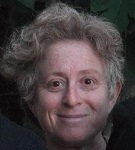Musings from Students of the Pardes Institute of Jewish Studies in Jerusalem
Posted on July 30, 2014 by Carrie Sealine
I shared these words at the final Community Lunch of the 2014 Summer Program:
 I am an unorthodox Jew. But I know I am Israel because I wrestle with Divine Power — אל — all the time. ישראל: the Power Wrestlers.
I am an unorthodox Jew. But I know I am Israel because I wrestle with Divine Power — אל — all the time. ישראל: the Power Wrestlers.
Among the powers with which I struggle is the power that comes from privilege. I have the privilege of white skin. I have the privilege of education, of being able to study at a place like Pardes. I have the privilege of having some kind of affluence in a world where most people have none.
I live in Oakland, California. When folks I know asked me if I were afraid to go to Israel — and this was before the מצב — I said no. In my neighborhood alone, three people have been murdered since January of this year. Since I’ve been here, a young woman active in the community, but who lived in another neighborhood, was also murdered. She left behind a young boy, a toddler. I don’t know why people desire to kill each other. I only know that they do.
I came to Pardes to study Talmud and quite by chance, given the מצב, I’ve been studying, with the wonderful Leah Rosenthal, chapter eight of Baba Kama, החובל, the one who injures his neighbor. This chapter deals with the question of how to properly interpret the Biblical command to take an eye for an eye, a tooth for a tooth, a leg for a leg and so on. It’s clear (if the Talmud can ever be said to be clear) that the Hazal never thought for a minute that even השם meant literally, ממש, an eye for an eye, but rather that the divine will was for us somehow to determine the just monetary value of the injury, ממון, and compensate accordingly. Only a life is to be paid for with a life. Unlike the extraordinary act of murder, which is beyond the concept of value, bodily injury is essentially a complicated form of property damage. Complicated, because it is not limited strictly to compensation for the merely physical damage, but must calculate four other categories including pain and humiliation, any and all of which can be difficult to quantify.
The מצב, the situation with Hamas that has developed here as I’ve been studying this פרק, from the kidnapping and murder of three teenage Israeli boys and the retaliatory murder of a Palestinian youth to the outright war and growing toll of dead on both sides, has given me plenty to wrestle with. My holy teachers, the Grateful Dead, who I listen to almost every day, ask, “Am I the victim or the crime?” Given the rhetoric on both sides of the conflict, I’m reminded of the words of my holy teacher, Elvis Costello, who asked, “What’s so funny about peace, love, and understanding?” With all the righteous anger and justification for killing and bloodthirst again on both sides, I think that more than ever we need to remember that our holy Torah teaches us to be like the highest of high priests, Aaron, and pursue peace, which is wholeness, שלום.
You wouldn’t know it to look at me or to hear me talk, but despite the fact that I don’t do mincha I’m a big davenner and I believe that prayer is power. What we do here affects what happens in the divine realm. We not only bring down divine energy with our תפילה, we send it back up to the source of all power. Our teachers teach us, as above, so below; as below, so above. We have the power to repair damage, to make the broken whole again, to make peace.
I invite you all to daven with me the way we do in my home community (Coastside Jewish Community, Bay Area, California). We all know this prayer, I think. It comes at the end of the עמידה, the prayer more than any other makes us the channel, the conduit for the קדוש.
O’seh shalom, shalom bim’ro’mav
Hu ya’a’seh shalom aleinu
V’al col, v’al col Yis’ra’el
V’al col Yish’ma’el
V’al col ha’olam.May the One who makes wholeness/peace above
Make wholeness/peace on us
On all of Yis’ra’el (the God/Power Wrestlers)
On all of Yish’ma’el (the Hearers of Divine Voice/Power)
And on all of the world (all of space and time).